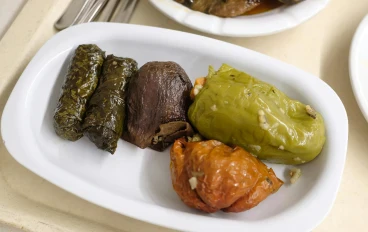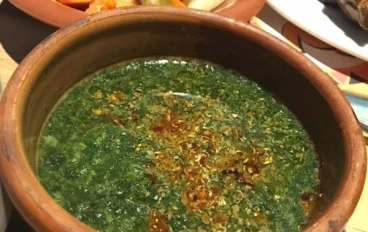
Homemade Singapore laksa recipe
Homemade Singapore laksa recipe

Introduction to Singapore Laksa
Singapore Laksa is a delectable dish that holds a special place in Southeast Asian cuisine. It's a spicy noodle soup that tantalizes taste buds with its rich and aromatic flavors. In this article, we'll explore the art of making homemade Singapore Laksa, delving into its history, ingredients, cooking methods, variations, health benefits, serving suggestions, and more
History and Origin
Laksa traces its roots back to the Peranakan culture, which is a blend of Chinese and Malay influences. The dish originated in the Straits of Malacca region and has evolved over centuries, with each cultural group adding its own twist to the recipe. Today, Laksa is celebrated not only in Singapore but also in Malaysia and other parts of Southeast Asia
Ingredients Required
Spices and Herbs
The key to a flavorful Laksa lies in its spice paste, which typically includes ingredients like dried chilies, lemongrass, galangal, turmeric, and shrimp paste. These spices impart a complex and aromatic profile to the dish.
Protein Options
Laksa offers a variety of protein options, including shrimp, chicken, tofu, and fish cakes. Each protein adds its own unique taste and texture to the dish, allowing for versatility in flavor.
Noodles and Broth
Rice vermicelli or thick rice noodles are commonly used in Laksa, paired with a rich and creamy coconut milk-based broth. The broth is infused with the flavors of the spice paste, creating a harmonious balance of heat and creaminess

Cooking Methods
Preparing Laksa Paste
To make the Laksa paste, start by blending the spices and herbs into a smooth paste. Toasting the spices beforehand enhances their flavor, resulting in a more robust paste.
Making the Broth
Simmer coconut milk with the Laksa paste and additional spices until fragrant. This forms the base of the Laksa broth, which should be rich and creamy with a hint of spice.
Cooking Protein
Cook the protein of your choice separately before adding it to the broth. This ensures that the protein is cooked evenly and retains its flavor and texture.
Assembling the Laksa
Cook the noodles according to package instructions and divide them among serving bowls. Ladle the hot broth over the noodles, along with the cooked protein and any desired garnishes
Variations and Adaptations
Laksa comes in various regional variations, each with its own unique twist on the classic recipe. Some popular variations include Penang Laksa, which features a tangy fish-based broth, and Katong Laksa, which is served with cut-up noodles for easy eating
Health Benefits
Despite its indulgent flavors, Laksa can be a nutritious dish when made with wholesome ingredients. Coconut milk provides healthy fats, while spices like turmeric and lemongrass offer antioxidant and anti-inflammatory properties
Serving Suggestions
Serve homemade Laksa piping hot, garnished with fresh herbs like cilantro or Thai basil. Lime wedges and sambal chili paste are popular accompaniments that add brightness and heat to the dish
Popular Accompaniments
Laksa pairs well with a variety of side dishes, such as crispy fried shallots, hard-boiled eggs, and pickled vegetables. These add-ons complement the flavors of the Laksa and enhance the overall dining experience
Tips for Perfecting Homemade Laksa
- Use fresh and high-quality ingredients for the best flavor
- Adjust the level of spiciness to suit your taste preferences
- Experiment with different protein options and garnishes to customize your Laksa
Common Mistakes to Avoid
- Overcooking the noodles can result in a mushy texture
- Using too much shrimp paste can overpower the dish with a fishy flavor
- Neglecting to stir the coconut milk while simmering can cause it to separate
Storage and Reheating
Leftover Laksa can be stored in an airtight container in the refrigerator for up to three days. Reheat gently on the stove or in the microwave, adding a splash of coconut milk to revive the broth
Conclusion
Homemade Singapore Laksa is a culinary masterpiece that brings together a symphony of flavors and textures. Whether you're a seasoned chef or a novice cook, making Laksa from scratch is a rewarding experience that's sure to impress your taste buds and dinner guests alike. So roll up your sleeves, gather your ingredients, and embark on a flavorful journey to the heart of Southeast Asia
FAQs
?Can I make Laksa without shrimp paste
- Yes, you can omit shrimp paste if you're vegetarian or allergic to shellfish. Simply increase the amount of other spices and seasonings to compensate for the flavor
?What can I use as a substitute for coconut milk
- If you're lactose intolerant or avoiding coconut products, you can use a combination of dairy-free milk alternatives like almond milk or cashew cream
?Can I freeze Laksa for later consumption
- While you can freeze Laksa, the texture of the noodles and protein may change upon thawing. It's best to consume it fresh or refrigerate leftovers for a few days
?Is Laksa a spicy dish
- Traditionally, Laksa is known for its spicy kick, but you can adjust the level of heat to your liking by reducing the amount of chili peppers or using a milder variety
?Can I make Laksa in advance for a party
- Yes, you can prepare the Laksa broth and protein ahead of time and assemble the dish just before serving. This allows you to streamline the cooking process and focus on entertaining your guests



































